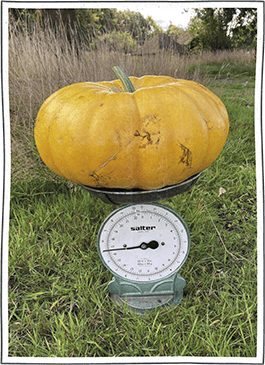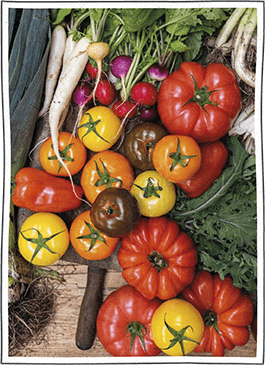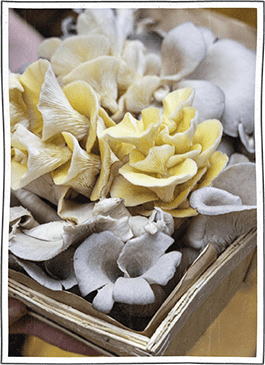Supply chain
We are dedicated to sourcing our products from suppliers with strong sustainability practices and low environmental impact. Our main focus when selecting suppliers centres around four key criteria:
- How sustainable is the product?
- How is the product packaged?
- How will the product be delivered?
- How will we dispose of the product?
Below are examples of our supply chain.
Food Suppliers
We take great care in selecting suppliers who share our values. We work closely with farms prioritising regenerative and low-impact farming methods, supporting small-scale growers who adhere to regenerative, organic, and biodynamic techniques.
To ensure the highest quality and provenance, we have built a butchery room at the rear of our kitchen, allowing us to purchase whole animals. This not only reduces the frequency of deliveries and our 'spend per kg' but also serves as a powerful recruitment tool. Few restaurants undertake whole-animal butchery, making our kitchen an inspiring space for aspiring chefs passionate about sustainability and the origin of their ingredients. Our primary sources of meat are Paddock Farm and Lyons Hill Farm, both dedicated to regenerative farming practices.
To further monitor and manage food waste, we have a dedicated food bin for scraps from customers' plates. This practice enables us to track uneaten food returning to the kitchen and make necessary adjustments accordingly.
We understand the importance of preserving fish stocks and are mindful of our fish purchases and limit them accordingly. We source stunning oysters from Rocks, and ChalkStream Trout, a sustainable fish, frequently features on our menu.
Additionally, we collaborate with Shrub, a network of small-scale growers in Kent and Sussex who share our commitment to regenerative, organic, and biodynamic farming methods. This collaboration ensures a steady supply of outstanding vegetables aligned with our sustainable ethos.
By partnering with suppliers who practice regenerative and sustainable farming, we strive to set an example in the hospitality industry, showcasing the positive impact of responsible sourcing on the environment and the quality of our offerings at The Pig's Head.
Drink Suppliers
We purchase house spirits from 58&Co and The Sustainable Spirits Company. These London-based companies deliver in large format recyclable eco-pouches that we decant into reusable glass bottles on site.
We source as many sustainable premium spirits as possible, including Nadar Gin & Vodka from the Arbikie Distillery, Cooper King Dry Gin and Discarded Spirits, to name a few. We also buy British wherever possible. For example, we stock Somerset Cider Brandy in place of Calvados, English sparkling wine in place of Champagne and, in our favourite play of words, Tarquin’s Cornish Pastis.
We have an extensive wine list, of which over 90% are organic, biodynamic or working with sustainable practices in the vineyard. Organic wine has several sustainable credentials, including:
- 1. Reduced use of pesticides and herbicides: Organic vineyards avoid using synthetic pesticides and herbicides, which can harm the environment and the health of farm workers. Instead, they rely on natural methods to control pests and diseases.
- 2. Soil health: Organic vineyards use natural methods to maintain soil health, such as crop rotation, cover cropping, and composting. This can lead to healthier soil, improving the quality of the grapes and reducing erosion.
- 3. Biodiversity: Organic vineyards promote biodiversity by avoiding synthetic chemicals that can harm beneficial insects and wildlife. This can create a more balanced ecosystem, improving the vineyard’s health and surrounding area.
- 4. Water conservation: Organic vineyards often use drip irrigation systems and other water conservation techniques to reduce water usage.
- 5. Reduced carbon footprint: Organic vineyards typically use fewer fossil fuels and chemicals, which can reduce their carbon footprint.
English wine currently makes up 30% of our wine list. This results in positive CO2e savings associated with transport. For example, our calculations show that by stocking English sparkling wine in place of Champagne, we have saved approximately 500kg of CO2e in transport-related emissions in our first twelve months.
Loo Roll
We purchase the UK’s first carbon-neutral toilet roll from Serious Tissues.
A Carbon Trust report shows virgin pulp toilet paper is the dominant product in the UK. Virgin pulp paper contributes to deforestation and uses significant water and power. Recycled paper is made from paper fibres that have already been used and would otherwise be discarded.
Using data from the above report, we can ascertain that by purchasing recycled, carbon-neutral toilet roll instead of virgin pulp toilet roll, we saved 407kg of CO2e in our first 12 months of trading.

Chemicals
We use cleaning products from ChemEco, a UK-based company with high sustainable credentials. ChemEco manufacture biodegradable cleaning products containing only microbes, enzymes, plant extracts and organic acids. To top things off, their packaging is made from 100% recycled milk cartons.
Bio-degradable cleaning products offer the following benefits:
- 1. Reduced pollution: Biodegradable cleaning materials break down into natural substances when exposed to the environment. Unlike traditional cleaning products, they do not leave behind harmful chemicals that can pollute waterways, soil, and air.
- 2. Conservation of resources: Biodegradable cleaning materials, such as plant-based ingredients, are typically made from renewable resources. This helps to conserve non-renewable resources, such as petroleum, used to produce many traditional cleaning products.
- 3. Reduced greenhouse gas emissions: Traditional cleaning products often contain chemicals contributing to greenhouse gas emissions during production and use. Biodegradable cleaning materials are typically manufactured using processes that generate fewer greenhouse gas emissions.
- 4. Healthier indoor environment: Biodegradable cleaning materials are often formulated with natural ingredients that are less harmful to human health than traditional cleaning products. This can help to create a healthier indoor environment, especially for those with allergies or chemical sensitivities.
Overall, using biodegradable cleaning materials can reduce the negative impact of cleaning products on the environment and human health while promoting more sustainable use of resources.
Back to top







